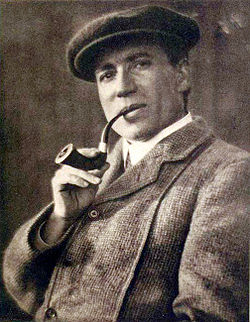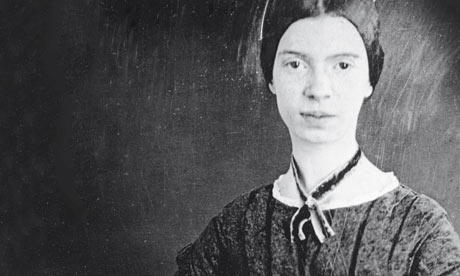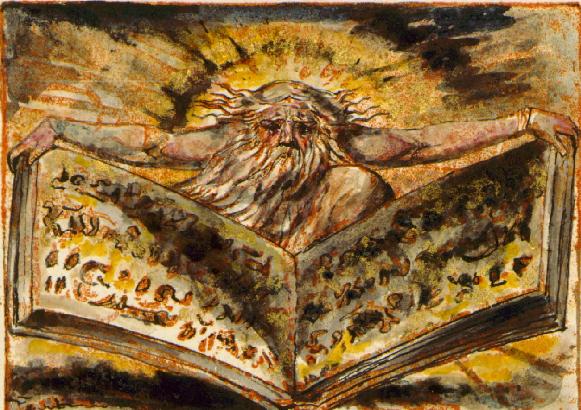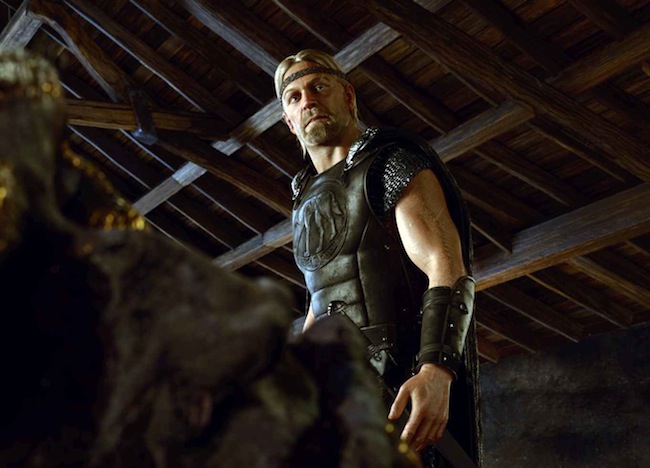Most famous poem Leisure:
What is this life if, full of care,
We have no time to stand and stare.
No time to stand beneath the boughs
And stare as long as sheep or cows.
No time to see, when woods we pass,
Where squirrels hide their nuts in grass.
No time to see, in broad daylight,
Streams full of stars, like skies at night.
No time to turn at Beauty’s glance,
And watch her feet, how they can dance.
No time to wait till her mouth can
Enrich that smile her eyes began.
A poor life this if, full of care,
We have no time to stand and stare.
Place of Birth: Newport
Biography:
The life of Newport’s “tramp poet” is one of the most remarkable in literary history.
William Henry Davies was born in lowly circumstances in Portland Street in the Pill district of Newport, the son of an iron-moulder who died when he was two years old.
His mother remarried and left her three children to be adopted by their grandparents, who ran the nearby Church House Inn. Badly behaved as a teenager, Davies joined a shoplifting gang and was given the birch for stealing two bottles of perfume.
On leaving school he began work as an ironmonger before signing up as apprentice to a picture frame maker. But Davies was dissatisfied with life in Newport, leaving first for London, then Bristol, and eventually the USA in 1893.
He spent the next six years intermittently working and begging his way across North America, occasionally working his passage back to the UK as a sailor on cattle ships. Being jailed for vagrancy was an occupational hazard which at least offered a few days’ shelter.
Davies documented this period of his life in his acclaimed memoir Autobiography of a Super-Tramp although the book may be short on facts and long on embellishment. The turning point in his life was the loss of a leg after he was dragged under the wheels of an express train he’d tried to jump onto at Renfrew, Ontario.
Unfit for manual labour or life on the road, Davies turned to writing and returned to London where working-class poetry was all the rage and his memorable, accessible verse found favour. But the bohemian boy from Pill felt out of place in Edwardian London’s literary circles.
At the age of fifty he married Helen Payne, a prostitute thirty years his junior, leaving the city to move first to Sussex and later Gloucestershire. Davies continued writing and an account of his marriage was eventually published in 1980 as Young Emma.
He returned to his native Newport in September 1938 for the unveiling of a plaque in his honour at the Church House Inn with an address given by the Poet Laureate John Masefield. Davies was unwell, and this proved to be his last public appearance. His health deteriorated, not helped by the weight of his wooden leg, and he died in September 1940 at the age of 69.
A statue inspired by his poem Leisure can be seen in Commercial Street in Newport.
Works
- The Soul’s Destroyer and Other Poems (of the author, The Farmhouse, 1905) (also Alston Rivers, 1907), (Jonathan Cape, 1921)
- New Poems (Elkin Mathews, 1907)
- Nature Poems (Fifield, 1908)
- The Autobiography of a Super-Tramp (Fifield, 1908) (autobiographical)
- How It Feels to be Out of Work (English Review 1, Dec 1908)
- Beggars (Duckworth, 1909) (autobiographical)
- Farewell to Poesy (Fifield, 1910)
- Songs of Joy and Others (Fifield, 1911)
- A Weak Woman (Duckworth, 1911)
- The True Traveller (Duckworth, 1912) (autobiographical)
- Foliage: Various Poems (Elkin Mathews, 1913)
- Nature (Batsford, 1914) (autobiographical)
- The Bird of Paradise (Methuen, 1914)
- Child Lovers (Fifield, 1916)
- Collected Poems (Fifield, 1916)
- A Poet’s Pilgrimage (or A Pilgrimage In Wales) (Melrose, 1918) (autobiographical)
- Forty New Poems (Fifield, 1918)
- Raptures (Beaumont Press, 1918)
- The Song of Life (Fifield, 1920)
- The Captive Lion and Other Poems (Yale University Press, on the Kinglsey Trust Association Publication Fund, 1921)
- Form (ed Davies and Austin O Spare, Vol 1, Numbers 1, 2 & 3, 1921/1922)
- The Hour of Magic (illustrated by Sir William Nicholson, Jonathan Cape, 1922)
- Shorter Lyrics of the Twentieth Century, 1900-1922 (ed Davies, Bodley Head, 1922) (anthology)
- True Travellers. A Tramp’s Opera in Three Acts (illustrated by Sir William Nicholson, Jonathan Cape, 1923)
- Collected Poems, 1st Series (Jonathan Cape, 1923)
- Collected Poems, 2nd Series (Jonathan Cape, 1923)
- Selected Poems (illustrated with woodcuts by Stephen Bone, Jonathan Cape, 1923)
- `Poets and Critics’ – New Statesman, 21, (Sept 8th 1923)
- What I Gained and Lost By Not Staying At School (Teachers World 29, June 1923)
- Secrets (Jonathan Cape, 1924)
- Moll Flanders, introduction by Davies (Simpkin, Marshall, Hamilton, Kent and Co, 1924)
- A Poet’s Alphabet (Jonathan Cape, 1925)
- Later Days (Jonathan Cape, 1925) (autobiographical)
- Augustan Book of Poetry: Thirty Selected Poems (Benn, 1925)
- The Song of Love (Jonathan Cape, 1926)
- The Adventures of Johnny Walker, Tramp (Jonathan Cape, 1926) (autobiographical)
- A Poet’s Calendar (Jonathan Cape, 1927)
- Dancing Mad (Jonathan Cape, 1927)
- The Collected Poems of W. H. Davies (Jonathan Cape, 1928)
- Moss and Feather (Faber and Gwyer (No. 10 in the Faber Ariel poems pamphlet series, 1928) (illustrated by Sir William Nicholson)
- Forty Nine Poems (selected and illustrated by Jacynth Parsons (daughter of Karl Parsons), Medici Society, 1928)
- Selected Poems (arranged by Edward Garnett, introduction by Davies, Gregynog Press, 1928)
- Ambition and Other Poems (Jonathan Cape, 1929)
- Jewels Of Song (Jonathan Cape, 1930)
- In Winter (Fytton Armstrong, 1931) (limited edition of 290, illustrated by Edward Carrick; special limited edition of 15 on handmade paper also hand-coloured)
- Poems 1930-31 (illustrated by Elizabeth Montgomery, Jonathan Cape, 1931)
- The Lover’s Song Book (Gregynog Press, 1933)
- My Birds (with engravings by Hilda M. Quick, Jonathan Cape, 1933)
- My Garden (with illustrations by Hilda M. Quick, Jonathan Cape, 1933)
- `Memories’ – School, (1, Nov 1933)
- The Poems of W. H. Davies: A Complete Collection (Jonathan Cape, 1934)
- Love Poems (Jonathan Cape, 1935)
- The Birth of Song (Jonathan Cape, 1936)
- `Epilogue’ to The Romance of the Echoing Wood, (a Welsh tale by W. J. T. Collins, R. H. Johns Ltd, 1937)
- The Loneliest Mountain (Jonathan Cape, 1939)
- The Poems of W. H. Davies (Jonathan Cape, 1940)
- Common Joys and Other Poems (Faber and Faber, 1941)
- Collected Poems of W. H. Davies (with Introduction by Osbert Sitwell, Jonathan Cape, 1943)
- Complete Poems of W. H. Davies (with Preface by Daniel George and Introduction by Osbert Sitwell, Jonathan Cape, 1963)
- Young Emma (Jonathan Cape, written 1924, published 1980) (autobiographical)











